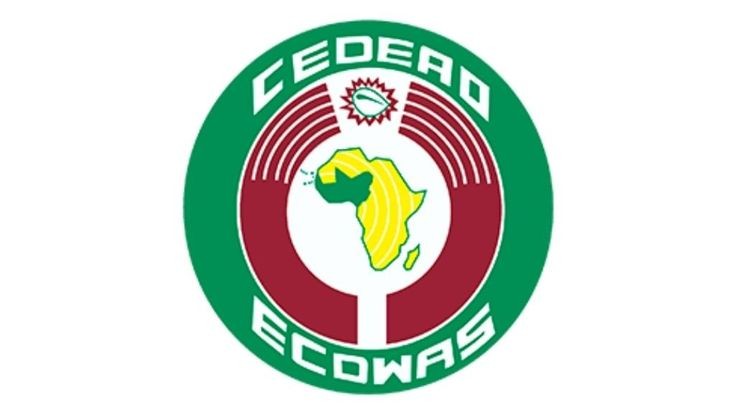Recently, three African states, namely Niger Junta, Mali, and Burkina Faso, left ECOWAS (Economic Community of West African States). The major reason they exited this 15-member bloc is security.
Following their departure, ECOWAS faced another issue in Senegal when the president decided to extend his office stay till April 02 and yet failed to schedule a date for the general election.
ECOWAS has been losing grip on the political, economic, and protection of its members. This prompts questions like, is it time for this community to split and for member countries to come up with something better? Or are the current organisation leaders just incompetent?
There will be a major crisis in Africa if ECOWAS divides, particularly in the West. Africa is best together with the West African States intact.
So today, we’ll be discussing the potential negative consequences of the fall of ECOWAS. But before then, let’s check out the history of Ecowas, why it was founded, and how its members have benefited from its formation.
Table of Contents
A Brief History of ECOWAS
The Economic Community of West African States was born out of a desire for West African nations to join hands and work together for their mutual benefit. Here’s a quick rundown of its history:
Back in 1975, some smart leaders from West Africa came together and decided to team up and help each other out. They signed a paper called the Treaty of Lagos. That was when ECOWAS was born. At first, they were all about making friends and doing business together.
But as time went on, they realized they needed to do more than trading. So, in 1993, they made some changes to their plans. They decided to also work on keeping the peace and making sure everyone was safe.
So basically, ECOWAS started as a group of countries trying to help each other make money, and now they’re also making sure everyone gets along and stays safe. It’s like a big family looking out for each other in West Africa!
Read also: African Languages in the Digital Age: Revitalization and Preservation
Roles of ECOWAS in West Africa Conflict Resolution
ECOWAS has a strong track record of intervening in conflicts within the region to promote stability and resolve disputes. Through its military and diplomatic mechanisms, ECOWAS deploys peacekeeping forces, mediators, and observers to conflict zones.
For instance, ECOWAS has intervened in conflicts in Liberia, Sierra Leone, Ivory Coast, and Mali, among others. These interventions often involve negotiation, mediation, and, when necessary, the deployment of peacekeeping troops to enforce peace agreements. ECOWAS’ proactive stance in conflict resolution has helped prevent the escalation of violence and facilitate the peaceful resolution of disputes.
Additionally, the Community of West African States engages in preventive diplomacy and conflict resolution efforts to address tensions before they escalate into violence. It establishes early warning systems to identify potential sources of conflict and facilitates dialogue between conflicting parties to find peaceful solutions. Through its mediation efforts, this community has played a crucial role in negotiating peace agreements and facilitating reconciliation processes in conflict-affected areas.
Furthermore, ECOWAS collaborates with international partners, such as the United Nations and the African Union, to enhance collective security efforts and promote regional stability. By coordinating with other regional and international actors, the Community of West African States maximizes its impact and resources in peacekeeping operations.
Below are some major roles of ECOWAS:
-
Peace and security
Ensuring peace and security is at the core of ECOWAS’ mission. Beyond addressing specific conflicts, they work to strengthen regional mechanisms for conflict prevention, management, and resolution.
They establish early warning systems to identify potential sources of conflict, engage in preventive diplomacy to address tensions before they escalate into violence and facilitate peace talks and reconciliation processes.
Don’t you think it’s prime time to connect with passionate readers and writers like you? Join our WhatsApp community today; you’ll be glad you did.
-
Economic integration
The union recognizes that sustainable peace and development are closely intertwined. Therefore, they promote economic integration as a means to foster stability and prosperity in the region.
Also, the union facilitates the free movement of goods, services, and people among member states, creating a common market that encourages trade and investment.
By harmonizing trade policies, eliminating trade barriers, and promoting infrastructure development, ECOWAS aims to boost economic growth and reduce poverty.
The Community of West African States implements programs to address economic disparities among member states and promote inclusive development. Through their economic integration initiatives, they seek to build a more resilient and interconnected West African community.
-
Promoting democracy and good governance
Promoting democracy and good governance is another significant aspect of ECOWAS’ mandate. The community believes that democratic governance is essential for peace, stability, and sustainable development in the region.
To this end, the Economic Community monitors elections in member states to ensure they are free, fair, and transparent. It sends observer missions to assess the electoral process and provide recommendations for improvements.
ECOWAS encourages member states to uphold democratic principles and respect for human rights through political dialogue and diplomatic engagement. It condemns unconstitutional changes of government, such as coups d’état, and imposes sanctions on individuals and regimes that undermine democratic norms and institutions.
Additionally, ECOWAS supports capacity-building initiatives to strengthen democratic institutions, promote the rule of law, and enhance transparency and accountability in governance.
It provides technical assistance and training programs to government institutions, civil society organizations, and electoral bodies to promote good governance practices and democratic values.
Other Impacts of the Economic Community of West African States
ECOWAS’ influence extends beyond its member states, serving as a beacon of regional integration, peacekeeping, and economic cooperation across Africa. Its success sets a precedent for other African regions seeking to enhance unity and stability.
By promoting trade, investment, and infrastructure development, ECOWAS indirectly supports economic growth in neighbouring regions. Internationally, the community’s peacekeeping efforts contribute to global security initiatives, showcasing African diplomatic engagement.
Thus, the impact of this economic community resonates throughout Africa, offering valuable lessons and inspiration for continental progress while contributing positively to global peace and development efforts.
Read also: Non-Profit Organisation in Africa: What it is And How to Run it
Potential Impacts of the Fall of ECOWAS
The potential fall of ECOWAS would reverberate across West Africa, impacting various aspects of the region’s economic, political, security, social, and humanitarian landscape.
The fall of the Economic Community of West African States will likely have the following impacts:
-
Economic impact
The community plays a crucial role in fostering economic cooperation, trade facilitation, and regional integration among its member states. The collapse of the Community of West African States could lead to the resurgence of trade barriers, tariffs, and economic fragmentation, hindering the free movement of goods, services, and people.
This could disrupt supply chains, decrease foreign investment, and impede economic growth, exacerbating poverty and unemployment in the region.
-
Political and security impact
ECOWAS serves as a stabilizing force in West Africa, mediating conflicts, promoting peacekeeping efforts, and upholding democratic governance principles.
The fall of ECOWAS would create a power vacuum, potentially leading to increased political instability, internal conflicts, and power struggles among member states.
Furthermore, the absence of ECOWAS’ peacekeeping mechanisms could escalate existing conflicts and exacerbate security challenges, including transnational crime, terrorism, illicit arms, and human trafficking.
-
Social and humanitarian impact
ECOWAS implements various social and humanitarian initiatives aimed at improving healthcare, education, and social welfare across the region.
The collapse of the community could disrupt these programs, exacerbating social inequalities, reducing access to essential services, and undermining progress in human development indicators.
ECOWAS plays a vital role in coordinating humanitarian responses to natural disasters, epidemics, and refugee crises. Without this community, the region could face challenges in effectively addressing humanitarian emergencies and providing assistance to vulnerable populations.
-
Movement of people
ECOWAS enables free movement across member states, fostering economic growth, cultural exchange, and social ties. Initiatives like the ECOWAS Travel Certificate streamline border procedures, enhancing accessibility and efficiency. This movement supports labour mobility, tourism, and cross-border trade, contributing to regional development and prosperity.
-
Public health
ECOWAS combats public health challenges through coordinated efforts, bolstering disease surveillance and response mechanisms. The ECOWAS Regional Centre for Disease Control and Prevention strengthens outbreak preparedness and healthcare systems. Collaborating with member states and partners, ECOWAS promotes vaccination campaigns and enhances access to essential medicines, improving community resilience.
Read also: Industrial Revolution in Africa: An Interesting Sight
ECOWAS’ Map of Survival
ECOWAS must address internal governance issues, enhance regional cooperation, and leverage external partnerships. Internally, ECOWAS must prioritize democratic governance, economic diversification, and infrastructure development to promote stability and economic growth.
Regionally, the West African Union must implement existing agreements, build trust among member states, and engage civil society is crucial to fostering collaboration and integration.
Externally, ECOWAS should forge strategic partnerships to access resources and address emerging challenges like transnational crime and climate change. By focusing on these areas, ECOWAS can strengthen its effectiveness and impact, advancing its goals of economic integration, peace, and security in the region.
If you don’t mind receiving Africa-related insights like this in your inbox, you can subscribe to our newsletter and let’s keep you posted.
Conclusion
If ECOWAS were to collapse, it would spell trouble for West Africa and beyond. This community isn’t just any organization. It’s a lifeline for peace, stability, and economic growth in the region.
Without it, we’d struggle to resolve conflicts, keep our communities safe, and build a brighter future. ECOWAS isn’t just about us. It sets an example for the rest of Africa on how to work together and make progress.
So, we must do everything we can to keep ECOWAS strong and effective. After all, our collective well-being depends on it.
Edited by Priscilla Ajayi.
About Author
Latest entries



 Insight AfricaMay 8, 2024How Africa Will Be Affected When ECOWAS Ceases to Exist: A Looming Challenge
Insight AfricaMay 8, 2024How Africa Will Be Affected When ECOWAS Ceases to Exist: A Looming Challenge

